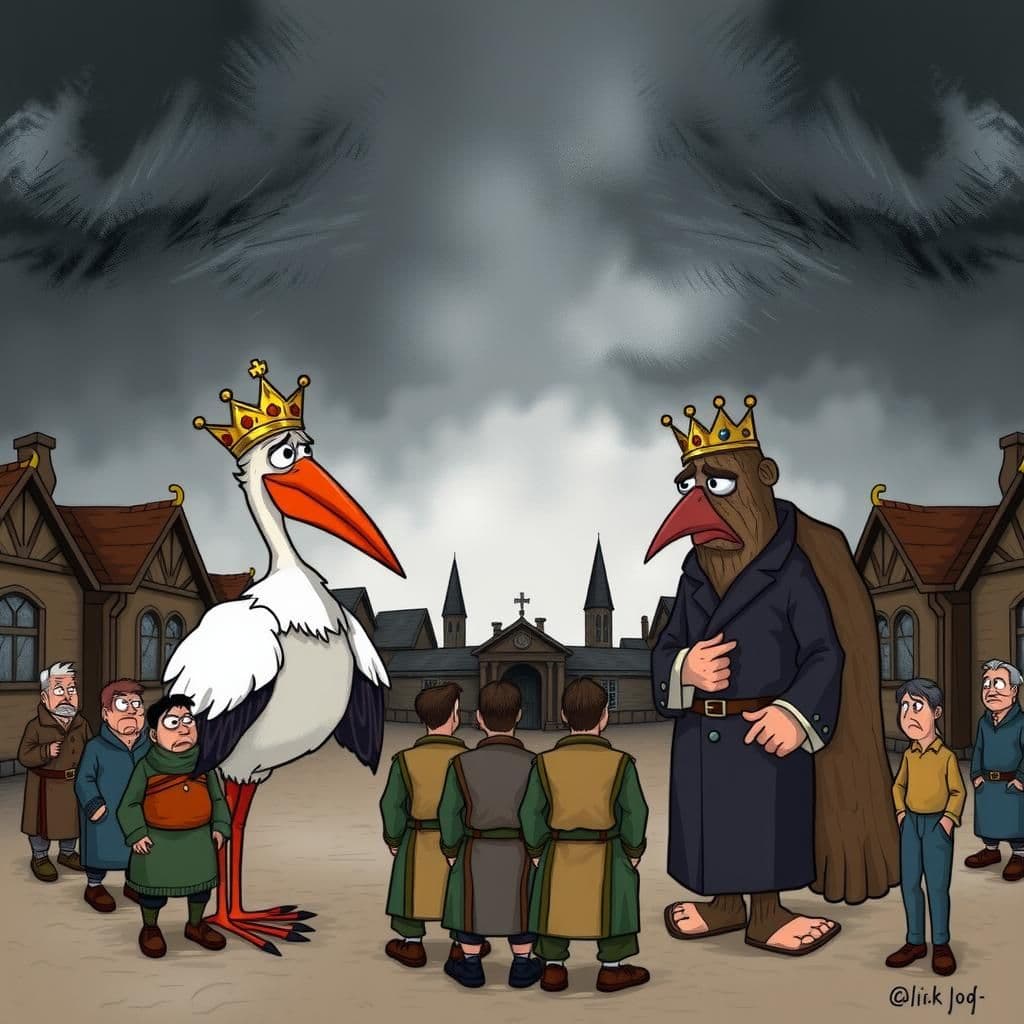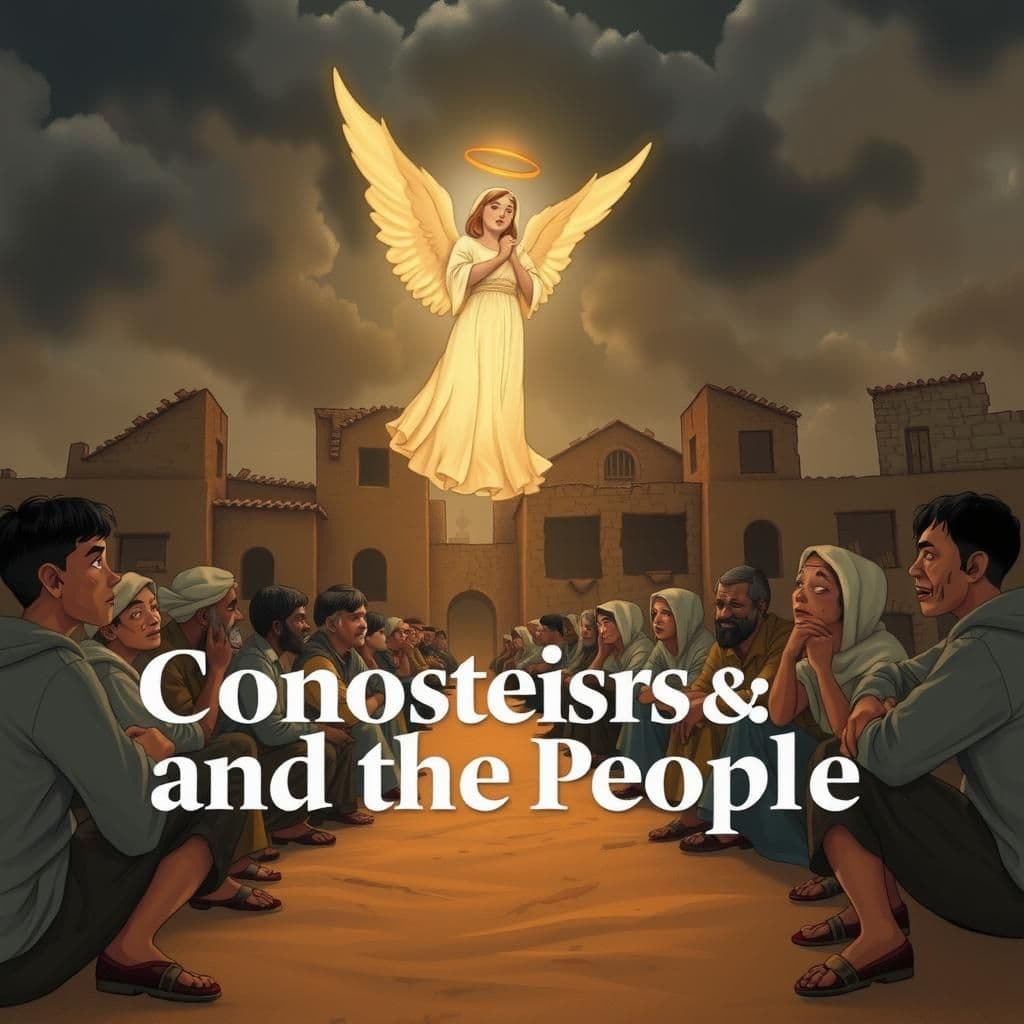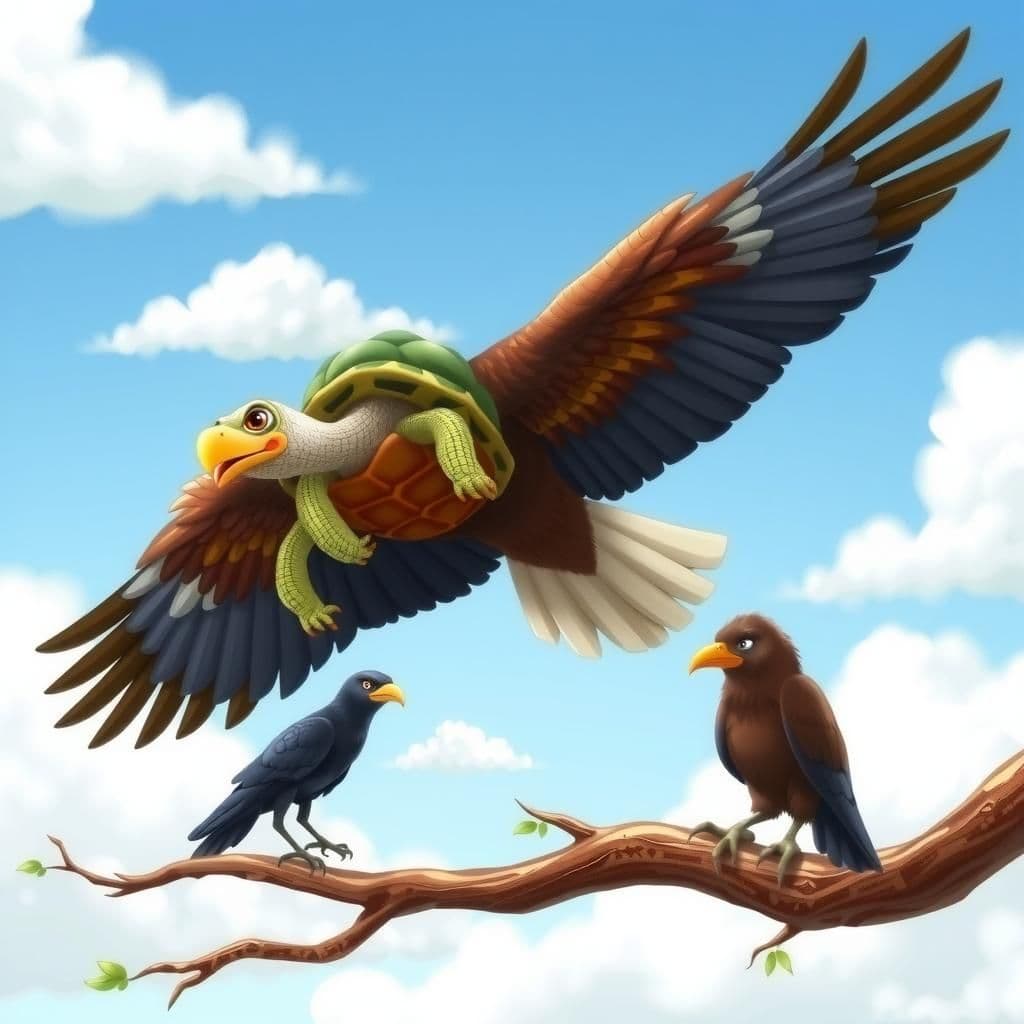King Log and King Stork
In "King Log and King Stork," a culturally significant moral story, the people, dissatisfied with a Democratic Legislature that only stole a portion of their wealth, elect a Republican government that exploits them even further. This long story with moral lessons illustrates how the new regime not only takes everything they have but also demands a promissory note secured by their very hope of death, serving as a cautionary tale about the dangers of political change without true accountability. Through this entertaining moral story, the narrative reflects the grim reality that without vigilance, the quest for better governance can lead to even greater exploitation.

Reveal Moral
"The moral of the story is that switching from one corrupt leadership to another can lead to even greater exploitation and loss."
You May Also Like

The Partridge and the Fowler
In "The Partridge and the Fowler," a fowler captures a partridge and contemplates killing it. The partridge pleads for its life, promising to lure more partridges to the fowler, but the fowler decides against mercy, deeming the partridge untrustworthy for its willingness to betray its fellow birds. This culturally significant moral story serves as a meaningful fable with a lesson about loyalty and trust.

Congress and the People
In "Congress and the People," a simple short story with moral lessons, the impoverished populace laments their losses to successive Congresses, weeping for all that has been taken from them. An Angel observes their sorrow and learns that, despite their despair, they cling to their hope in heaven—something they believe cannot be stripped away. However, this hope is ultimately tested with the arrival of the Congress of 1889, echoing themes found in famous fables with moral teachings about resilience and faith.

The Tortoise and the Birds
In "The Tortoise and the Birds," a simple short story with moral undertones, a Tortoise enlists an Eagle to carry him to a new home, promising a reward. However, when a Crow suggests the Tortoise would make a good meal, the Eagle, swayed by the idea, drops him on a rock, leading to his demise. This engaging moral tale serves as a cautionary reminder against trusting enemies for assistance, a common theme in famous moral stories and animal stories with moral lessons.
Quick Facts
- Age Group
- adultkidschildrenstory for class 6story for class 7story for class 8
- Theme
- corruptiondisillusionmentbetrayal
- Characters
- King LogKing Storkthe Peoplethe Democratic Legislaturethe Republican Legislature
Subscribe to Daily Stories
Get a new moral story in your inbox every day.